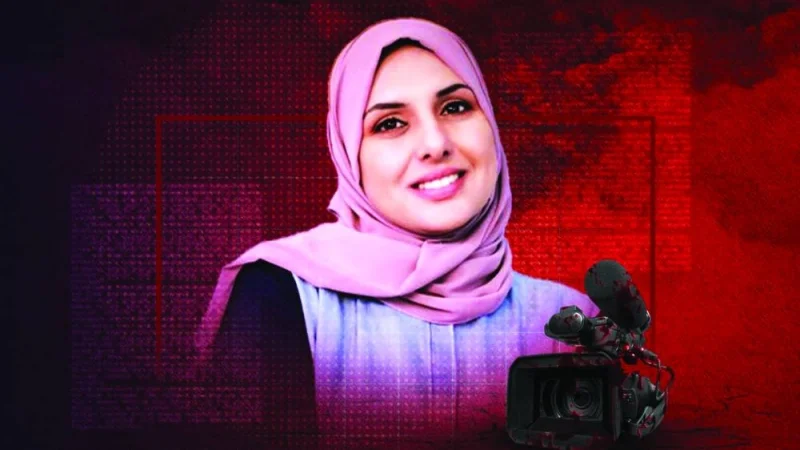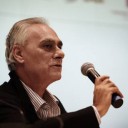Massad Boulos, President-elect Donald Trump’s adviser on Middle Eastern and Arab affairs, said that the United States would have to discuss laying out a “roadmap” to Palestinian statehood if it hopes to establish relations between Israel and Saudi Arabia.
Saudi officials have long made it known that they would not establish ties with Israel absent progress toward a Palestinian state. But for Boulos — a Lebanese-American billionaire and the father-in-law of Trump’s daughter Tiffany — to emphasise the point is significant because other Trump appointees, in addition to Trump himself, are seen as close to the Israeli right, which rejects Palestinian statehood.
“I think the issue of a roadmap that would lead to a Palestinian state is an important part of the discussions between the United States and Saudi Arabia,” Boulos said in a wide-ranging interview last week with Le Point, a French magazine. “It is certainly a very important point.”
Get The Jewish News Daily Edition by email and never miss our top storiesFree Sign Up
Boulos, 53, framed the focus on Palestinian statehood in terms of expanding the Abraham Accords, the 2020 normalisation agreements between Israel and four Arab countries that were Trump’s signature foreign policy achievement in his first term.
Trump has spoken repeatedly about expanding the Abraham Accords. In the interview, Boulos said that many additional countries would initiate ties with Israel if Saudi Arabia did so.
“It is important to remember that Saudi Arabia is not demanding the creation of a Palestinian state today, but it is asking for a vision and a road map for it, that’s all,” he said. “Today, the president’s priority is to resume discussions on the Abraham Accords, with, of course, Saudi Arabia first. Because we know very well, and the president has said it, that once we agree with Saudi Arabia on Israel, there will be at least 12 Arab countries that will be immediately ready to follow suit.”
It’s not clear how much influence Boulos will have with Trump. Another relative, Trump’s son-in-law Jared Kushner, spearheaded the Abraham Accords in Trump’s first term in addition to taking point on a wide range of other issues. Boulos had campaigned for Trump in Michigan, which has a large Arab-American population and which the president-elect won.
“Massad is an accomplished lawyer and a highly respected leader in the business world, with extensive experience on the International scene,” Trump said when announcing Boulos’ position on Truth Social, the platform Trump owns. “He has been a longtime proponent of Republican and Conservative values, an asset to my campaign, and was instrumental in building tremendous new coalitions with the Arab American Community. Massad is a dealmaker, and an unwavering supporter of peace in the Middle East.”
Before Hamas attacked Israel on Oct. 7, 2023, launching Israel’s multi-front war, a deal with Saudi Arabia was also a primary goal of President Joe Biden as well as Israeli Prime Minister Benjamin Netanyahu. But Netanyahu opposes the establishment of a Palestinian state, and has doubled down on that position since the Oct. 7 attack. Most Israelis also oppose Palestinian statehood.
Also opposed to a Palestinian state is Mike Huckabee, Trump’s pick for ambassador to Israel, who supports Israel perpetually controlling the West Bank, which would preclude Palestinian statehood. Trump’s former ambassador to Israel, David Friedman, also supports Israel’s West Bank settlements.
Trump has also named pro-Israel hawks to other key positions, including Florida Rep. Mike Waltz as national security adviser; Rep. Elise Stefanik as United Nations ambassador; Fox News pundit Pete Hegseth as defenc
-e secretary, and Marco Rubio as secretary of state.
Boulos would not address calls from far-right figures in Netanyahu’s coalition to annex the West Bank, but said that as of Trump’s inauguration on Jan. 20 there would be a “very clear and precise policy on this issue, and one that must be respected.”
Before the Abraham Accords were signed, Trump had proposed a peace plan that would have seen expanded Palestinian autonomy in the West Bank — though Israeli settlements would have remained in place and Israel would have security control over the entire area.
Palestinian leaders immediately rejected the proposal because it stopped short of giving them statehood — but Boulos feels that it was tantamount to endorsing a Palestinian state.
“If you look at the plan that was proposed in 2020 by President Trump, it spoke very clearly about an eventual Palestinian state,” he said.
On Iran, Boulos echoed Trump in saying there should be a new nuclear deal to replace the one Trump pulled out of in 2018 at Netanyahu’s behest. Boulos also noted that Trump has not spoken of regime change in Iran. “He has not spoken about regime change, but only about a nuclear deal, and that he is ready to negotiate with the current regime,” he said.
Boulos was careful in the interview, repeatedly saying that he did not want to say too much before Trump assumed office, invoking the belief that the United States should have only one president at a time. That marked a contrast with Trump, who is already conducting an aggressive foreign policy.
“As you well know, we are still in the transition period and we don’t really have the right to interfere in U.S. foreign policy, as long as the Biden administration is still in power and guides American diplomacy,” Boulos said.










 Ahmed al-Sharaa, leader of the Islamist Hayat Tahrir al-Sham rebel group, at the historic Umayyad mosque in Damascus (Photo: Aref Tammawi/AFP)
Ahmed al-Sharaa, leader of the Islamist Hayat Tahrir al-Sham rebel group, at the historic Umayyad mosque in Damascus (Photo: Aref Tammawi/AFP)
